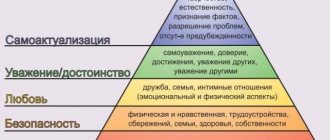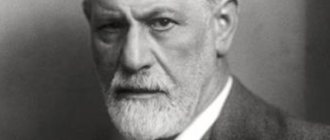Sometimes we have to leave one or another action unfinished due to various reasons. Well, then we can suffer at night, and this unfinished task will remind itself again and again with annoying thoughts, even if this is the very task and there is no need to finish it to the end for one reason or another. This does not at all indicate our high degree of conscientiousness or anything like that. The thing is that in the theory of modern Gestalt psychology there is such a concept as the Zeigarnik effect, which owes its name to the Soviet scientist B.V. Zeigarnik.
Who is she - Bluma Volfovna?
Bluma was born in 1900 in the north-east of Russia, and throughout her childhood and adolescence nothing foreshadowed her high achievements in pathopsychology. At the age of 21, the girl got married and moved to Berlin, where she entered college.
It was only while attending lectures that she became thoroughly interested in the psychology of personality, as well as the various processes that manifest themselves in human behavior in the event of a particular disorder.
It is surprising that the phenomenon, which would later be given the name “Zeigarnik Effect in Psychology” and which would glorify Bluma Volfovna, became the object of study in the doctor’s works back in her student years and was the main topic of her thesis. Of course, throughout her life, Mrs. Zeigarnik made many discoveries, working as an assistant to L. S. Vygotsky in the psychoneurological clinic at the Institute of Experimental Medicine. However, her first work, studied and revealed to the world at a young age, has become an indispensable contribution to the Gestalt psychology of the modern world.
Unfinished gestalt. The theory of unfinished actions in Gestalt psychology
At the beginning of the twentieth century, a direction in psychology was founded in Germany, which was called “Gestalt psychology.” Gestaltists based their scientific theory on the fact that a person’s perception of the surrounding world is based on the sensory and figurative perception of objects and phenomena as integral structures, indivisible into individual components. For example, if a person sees some familiar object with missing parts, then his consciousness strives to complement this object and “complete” these missing parts.
In the same way, people strive to complete, complement, bring to a logical whole unfinished actions, unexperienced feelings, unexpressed emotions and thoughts. The principle of completion formed the basis of the psychotherapeutic methods of Gestalt therapy, founded by F. Perls. He believed that the individual always strives to complete the unfinished gestalt, to complete the unfinished and to achieve a sense of wholeness and harmony. When certain life events and situations, as well as the feelings and experiences associated with them, come to a logical conclusion, a person experiences a state of calm and confidence, felt not only on an emotional, but also on a bodily level.
What does it mean to complete a gestalt? This means satisfying the need, the main and most significant one at a given moment in life, conscious and felt at the physical, emotional and mental levels. In Gestalt psychology, the emergence and satisfaction of a need is a cycle of formation and completion of Gestalt. Figuratively speaking, every human need is a bright figure that stands out against the general background of life experience. When the need is satisfied, the figure leaves, dissolves in the surrounding background, but another figure appears, and the higher and more significant the need, the clearer and brighter the contours of the figure. An incomplete gestalt is an interrupted cycle, a situation that is needfully or emotionally not brought to its logical conclusion. What is happening and why? The reasons for this can be very different. These may be external social factors or intrapersonal prohibitions and restrictions imposed by upbringing. Well, so what, someone will say. Unfinished actions do not mean the end of life, does it continue? Yes, life goes on, but how, and what? Every unmet need, especially a deeply significant one, leads to stress. Stress caused by the incompleteness of one need gives rise to the incompleteness of another. So, gradually life turns into a series of failures, unexpressed feelings, emotions, which entails boredom and inaction.
An emotionally incomplete gestalt is feelings of disappointment, grief and anger, sadness and resentment that arose sometime in the past in relationships with parents, lovers, children, spouses and which were not expressed and expressed. An unfinished gestalt can also be from unrequited love, actions not taken in the past, from an emerging and unconscious feeling of guilt, etc.
Psychotherapists argue that an incomplete gestalt forces a person to constantly return to it, to those unexpressed feelings, interrupted experiences or actions, trying to somehow relive them again, in a different form. Very often, parents, forcing their children to perform certain actions and deeds, try to complete their own unfinished gestalt in the past. But even more often, a person tries to avoid completing what was once unfinished, thereby increasing his dependence on the past. It includes mechanisms of avoidance and suppression of emerging unconscious needs and desires, once unrealized, and this, in turn, leads to neuroses and psychosomatic diseases.
Gestalt therapists, using various therapeutic techniques and methods, help a person to identify and realize from vague sensations and intuitive dissatisfaction once unfinished actions and emotions in order to experience them again, on a different level, and thereby harmonize their life.
Tandem of a Russian psychologist and a Berlin waiter
As mentioned earlier, the Zeigarnik effect was discovered by Mrs. Doctor during her student years. It was the 20s of the twentieth century, and young Bluma at that time was undergoing an internship with the luminary of pathopsychology, Kurt Lewin. One day, the great doctor and scientist decided to visit one of the usual crowded German cafes, inviting his trainee Zeigarnik there. The effect of unfinished action, as one of the laws of Gestalt psychology, arose in the student’s head on that very day, and this happened for the following reasons.
When the waiter arrived, he did not write down a single word from the announced list of the visitors’ orders, but at the same time he forgot absolutely nothing, and after a while the dishes were on the table. Surprised by the phenomenal abilities of the service worker, Bluma Volfovna noted the waiter’s extremely good memory. However, he said he never writes anything down. Then Zeigarnik asked the waiter to name what the people at the tables he had served had ordered - and he could not fully remember the order, citing the crowded cafe.
First tests to confirm the phenomenon
Having become interested in this issue and looking for scientific confirmation of it, after some time Bluma Zeigarnik, together with her friend and classmate Maria Ovsyankina, decided to conduct a certain experiment.
A certain group of people participated in the experimental activities and were given a goal in solving intellectual problems. At the same time, some people managed to solve the problem completely, but others were interrupted, not giving the opportunity to complete the task. As a result, a few days later, the experimental subjects were asked about the content of the tasks, and only those who did not manage to solve them to the end clearly remembered the conditions of the tasks. This phenomenon is called the Zeigarnik effect. Or - in another way - the effect of an unfinished action.
Practical use
The main conclusion that follows from the Zeigarnik effect is that at the beginning of a task, tension is created in a person’s memory, which persists until the task is completed. And this tension constantly strives for its realization - to complete the task begun. Completing tasks frees up your energy.
People like to feel complete, and conversely, they don't like unfinished tasks.
From this we can conclude that there is no need to have many unfinished tasks at the same time, since any unfinished task retains tension in the memory. And tension is a certain part of your distracted energy.
Each person has his own reasonable limit for the number of unfinished tasks. You need to understand it and try not to exceed it. If you are faced with a large task, then it is better to break it into parts in order to get satisfaction from solving intermediate tasks.
The Zeigarnik Effect, or How to Use the Completion Principle
Every psychological phenomenon has its practical application in everyday life, so often each of us suffers from the effect of an unfinished action, tormenting ourselves with unwanted memories of a particular incident.
Nobody likes uncertainty. But in the modern world, many advertisers and marketers use the effect of unfinished action to promote products on web pages, and simply in television advertising.
How it works? When it comes to advertising on web pages, often only key phrases addressing the consumer are placed on the banner. However, they are composed in such a way that they seem unfinished. Therefore, users of Internet pages, subconsciously avoiding the effect of incompleteness, follow the link and receive new information. In this case, the received data will be assimilated much better, since the principle of completion took place.
And now you ask: why are some television advertisements constantly revolving in the memory? And we will answer you: precisely for the same reason for the effect of incompleteness. Often, requests from producers come to us from the screens, some kind of dialogue with the viewer, which necessarily contains a question, which, in fact, is most remembered.
Consequences of the Zeigarnik effect in everyday life
The mental property called the Zeigarnik effect has manifestations in everyday life.
Unfinished business often haunts people, having the ability to constantly pop up in memory. This constant presence in memory of information about undone things causes tension, so after completing things there is a pleasant feeling of satisfaction and relief.
Because of the Zeigarnik effect, the learned material is remembered less well after passing the exam, and sometimes is completely forgotten. Fiction with an open ending is more impressive. The brain tends to repeatedly return to the uncertain ending of a book or movie.
For the same reason, memories of an unfinished relationship or an unfinished dispute can be painful. It is more difficult for people to stop worrying about a situation that they have not completed for themselves - one of the techniques in psychotherapy is based on this effect.
The phenomenon of incompleteness in love
Often we cannot forget about this or that person with whom we had a romantic or friendly relationship, justifying ourselves and selecting various psychological effects as justification. The Zeigarnik effect can explain a lot of suffering in failed relationships, especially if there was no obvious separation and division of property between partners.
Therefore, it is strongly recommended not to break up with ex-lovers over the phone or the Internet. The injured party will not be able to fully realize that everything is over, and this phenomenon of incompleteness will lurk in the person’s subconscious, not letting go of the image of the former lover.
The same applies to relationships that are destroyed due to a sudden distance between people. For example, if one of the halves leaves to work in another city and gradually becomes weaned from a loved one, there must be a fact of separation during a personal meeting. Otherwise, such a “silent” breakup can have a painful effect on the subconscious of the injured party.
How to recognize the Zeigarnik effect in yourself and how to deal with it?
After reading this article, some of you may have begun to wonder if this very effect of unfinished action is ruining your life? Let's try to figure it out.
The fact is that there are some symptoms, like a real disease itself, that indicate constant cyclical principles of incompleteness in your life:
- if you feel constant anxiety, despite a coherent life, good job and family;
- if your personal life does not work out again and again for reasons unknown to you;
- if you often come up with the continuation of certain words of your interlocutor;
- if you feel that you are increasingly stepping on the same rake.
The above symptoms are not at all signs of ordinary failures in life. All problems lie within the person himself. You just need to open your eyes to the sometimes very painful truth and rethink the current unfinished situations.
And no treatment is needed at all, and there is no need to look for old acquaintances and complete unfinished business. Just realize for yourself that a lot of time has passed, and it’s time to let go of the situation, there is no need to justify or feel sorry for anyone. You'll see - life will become easier. Just let go.
Expected reward and Zeigarnik effect
However, this effect does not always work, and those who typically work 8-10 hours a day are likely to not be able to use it. Why is this so?
A 2006 University of Mississippi study found that the Zeigarnik effect stops working when a person expects a reward. The experiment involved two groups who worked on the task in the same way as in Zeigarnik’s experiment. In the process, they were interrupted before the work was completed. But the first group was told that they would be paid for participating in the study, and the second group was not promised a reward.
As a result, 86% of participants who were unaware of payment chose to return to tasks after being interrupted, while only 58% of those awaiting payment returned to the task after an interruption. When the study was completed and the participants received the reward, they saw no point in returning to the tasks. In addition, participants who were waiting to be paid spent less time on the task, even if they returned to it.
If we apply the data from this study to a typical 8-hour workday, the picture emerges bleak. The end of the workday acts as an interruption during the experiment: when the 8 hours are over, the task is postponed until the next day. And payment for time, and not for completed tasks, acts as an expected reward.
Research shows that rewards can reduce the Zeigarnik effect, and the expectation of a reward, in the form of a paycheck, reduces interest in the task itself. In other words, thanks to the reward, an 8-hour workday makes us not think about work.








